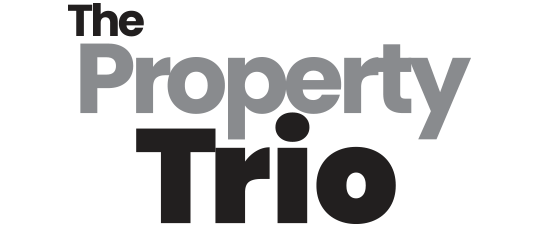
Ep. 203 – Ownership structures Part 1: Co-ownership, parental support, buying with friends and alternative ways that buyers enter the market
Ep. 203 – Ownership structures Part 1: Co-ownership, parental support, buying with friends and alternative ways that buyers enter the market
The trio ponder the current market and share their thoughts on the improving conditions and some of the contradicting economist and media views. Cate highlights some of the reasons why our market has been underpinned, with an uptick of buyer appetite
Mike brings perspective to the Silicon Valley bank concerns, citing Peter Costello, our past-treasurer in a recent interview.
Kicking off episode 203…. What are some of the motivations for co-owning property?
Affordability is a significant reason for co-ownership, but as Cate explains, sometimes it’s all about bringing someone you love onto the property ladder. Her own real life story about purchasing with her stepson is a great example of a co-ownership success story.
Debt aversion is another common reason, but as the trio uncover later in the show, co-borrowing can have an adverse impact on future borrowing capacity… something to ponder before diving in!
Dave speaks about a sobering reason for co-ownership also. More joint income purchases have made it proportionately harder for singles to enter property ownership though.
“Today, it’s much harder for a single to buy a property than it was twenty, thirty, forty years ago”.
Mike asks Cate to explain the difference between joint ownership and tenants in common; an important concept when it comes to estate planning and tax. Dave points out that too many people think about ‘the now’ and not the future, however. Jumping into a decision without planning and consulting the relevant professionals can cost owners a lot in the long term.
The trio chat about the benefits of pooling resources;
- Diversification
- Reduced cashflow commitment
- The chance to buy a better asset with a stronger budget
- Getting into the property market earlier
- Being enabled to enter the property market when you’d otherwise have been precluded. For example, complementary financial positions such as a cashflow rich, cash-poor individual combining forces with a cashflow poor, cash-rich individual
Some of the issues that are often overlooked though are plentiful too.
- When one person has a sudden need to access their capital. Reasons can range from financial distress, new relationships and a desire to buy a home, etc.
- Lack of agreement about important issues, including the agreement itself
- An inequitable set of responsibilities between each owners and a feeling of dissatisfaction
- Risks to the relationship/friendship
Prepping for the entity decision is critical, and they must be arranged long before signing a contract. Mike asks Cate some good questions about the risks of buying at auction without a clear understanding of the entity, and Dave also sheds light on the ability of owners to switch between joint ownership and tenants in common after the property has settled.
Dave touches on just some of the less-considered details that co-owners need to delve into before they embark on the journey, including the exit-strategy, a dispute resolution clause, a financial default plan, and the distribution of profits. Are they paying down the loan with the rental proceeds once the property is cash positive, or are they distributing the funds? So much to think about….
“Once you dig under the surface, there are a lot of things to think about.”
Mike quizzes Cate and Dave on the pro’s and cons of corporate entities and trusts, from company tax rates on profits to the costs associated with the structuring and ongoing professional advice. Mike opens the conversation up about asset protection and the need for some owners in high-risk roles to consider alternative ownership structures.
Joint and several borrowing can unravel a co-ownership arrangement if the borrowers are unaware of the impact of the joint and several arrangement on future borrowings. What happens when a co-buyer owns 25% of a property with a friend, and then decides to purchase their own home a few years later, only to find that their bank servicing is insufficient due to the co-ownership loan? Dave gives an excellent example for buyers to consider when contemplating co-ownership.
Mike asks Cate about some of the things that people get wrong with trusts. “People try to out-sophisticate themselves”, says Cate. Too much information can be a dangerous thing, as can cutting corners with budget advisors when setting up structures.
Tune in next week for part 2, where the trio will cover more about alternative entities.
And…. our gold nuggets….
Dave‘s gold nugget: Often people are looking for a shortcut to make money, but there is no such thing in property. Having a plan and good advice is so important
Cate’s gold nugget: “Guard your relationship. Making money is great, but destroying a relationship is an enormous cost and it’s the worst”.
If you’ve enjoyed this episode, here are some other eps you may be keen to tune in to!
Ep. 14 – How to choose a location for investment
Ep. 22 – Why the family home is often the biggest piece of the investment puzzle
Ep. 95 – Security guarantees, co-borrowing, gifts and more

